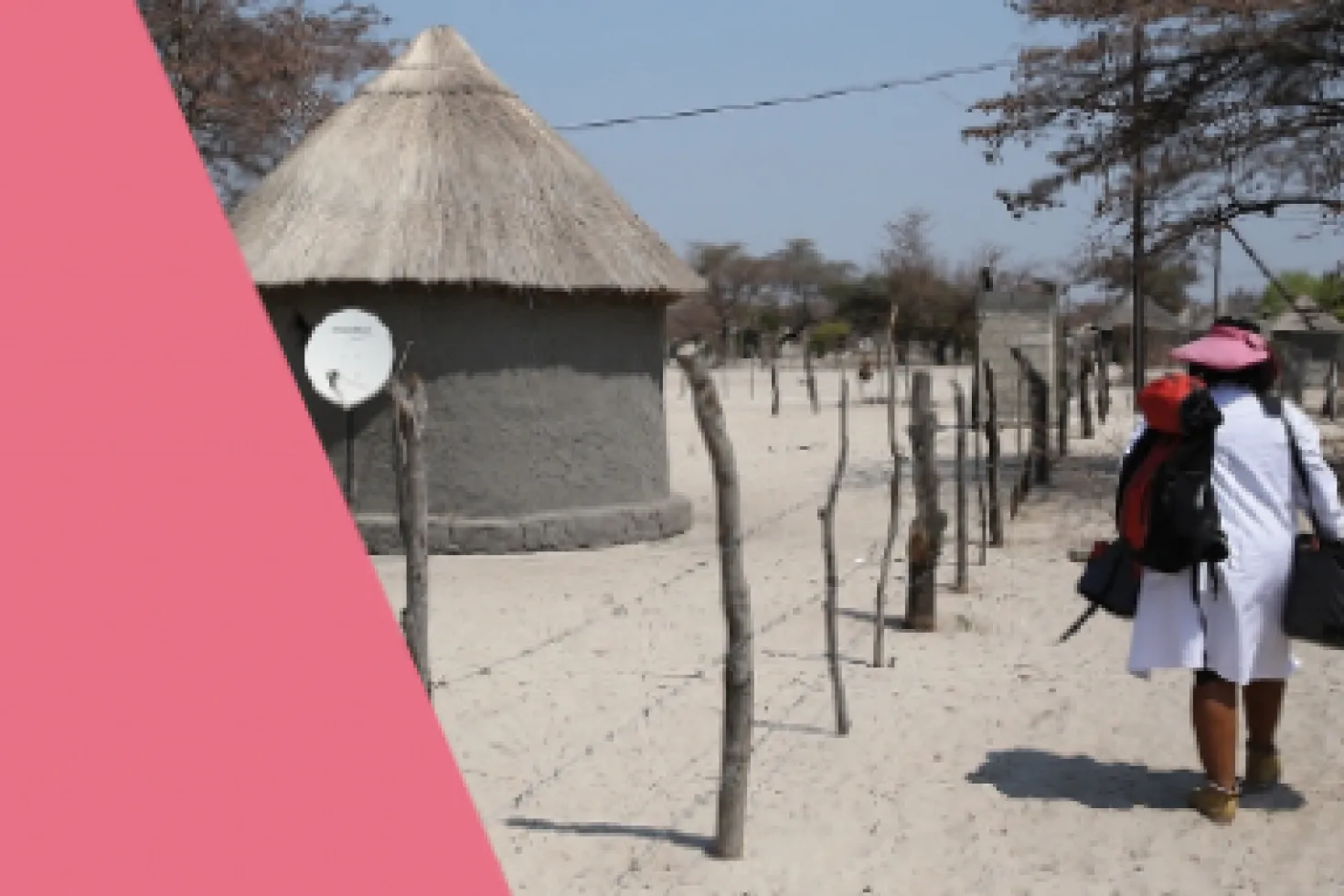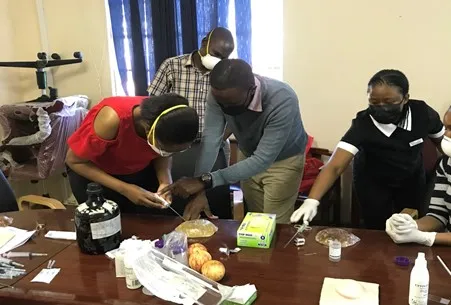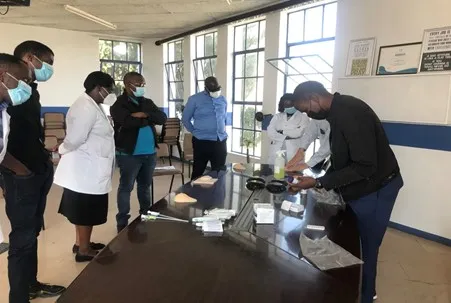Improving timely access to care for women with advanced stage breast cancer in Botswana

Context
In Botswana, 70% of cancers reported, where staging information is available, are diagnosed at advanced stages, severely limiting the impact of treatment and long-term survival. Advanced disease at presentation is multifactorial and hampered by delays in pathology turnaround times and consequent loss to follow-up. There are significant barriers to diagnosis and treatment in the country, including limited cancer services and a dearth of trained personnel. These barriers result in delayed diagnoses, with extended delays especially in regional sites. However, there is an equal need to increase support to women with advanced breast cancer by understanding and addressing patient fears, from the time of diagnosis throughout the cancer treatment cycle and beyond. This gap in information and support can affect treatment compliance; patients with advanced breast cancer often complete neoadjuvant chemotherapy, however, often decline the necessary surgery.
Established in 2018, the Botswana-Rutgers Partnership for Health (BRPH) is a collaborative research and training initiative between Botswana’s Ministry of Health and Wellness, University of Botswana and the Rutgers Global Health Institute. The partnership aims to help advance Botswana’s national program in cancer care and prevention; create joint research and training programs to improve cancer care and prevention; and create local, subspecialty medical and health professions training programs.
Project description
The Botswana-Rutgers Partnership for Health, administratively supported by the Botswana-Harvard AIDS Institute Partnership, was awarded a SPARC award in October 2019 as part of the Round 3 cohort of 11 grantees with their project “Improving timely access to care for women with advanced stage breast cancer in Botswana.”
The primary goal of the project is to improve timely access to care for women with advanced stage breast cancer through a multifaceted approach including: a focus on understanding the gaps in cancer care through focus group discussions and clinician questionnaires; the development of a patient navigation system; and the training of medical officers to perform fine and core needle biopsy procedures.
The project began with a study of patients’, caregivers’ and clinicians’ needs through focus groups and questionnaires. The study explored patient concerns, fears and beliefs regarding treatment modalities such as chemotherapy and surgery. In addition, for clinicians, knowledge, attitudes and practice regarding cancer diagnosis, familiarity with how cancer may present in a patient, and management options for metastatic breast cancer were also explored. In this setting, it was found that patients’ hesitancy to have recommended screening for cancer often came from the fear of diagnosis and the lack of screening facilities (cited by over 50% of patients).

In terms of healthcare workers’ knowledge, there was a significant gap in knowledge regarding screening guidelines, with 72% of focus group participants stating they were not aware of the guidelines. It was also reported by the clinicians that an estimated 40% of female patients have a low compliance rate to attend recommended screening opportunities for cancer, which reflected the hesitancy expressed by patients themselves.
In parallel, the BRPH team also assessed the functioning of the referral system. It was found that depending on the location where the patient was attended, it could take from several days to 18 months to receive a diagnosis, with an average diagnosis time of over five months across all providers analysed.
Based on these studies, a patient navigation system to improve referral delays and help to increase patients’ quality of life was set-up at several hospital facilities in the capital city of Gaborone. The programme included drafting a training curriculum for patient navigators and the training of 12 patient navigators on how to provide patients with tailored physical, psychological, and social support.
To complement the new navigation programme, and help address the shortage of skilled healthcare workforce and strengthen the diagnosis capacity, BRPH also delivered training on biopsy procedures in six different hospital sites in the country where patient navigators are based.
Impact
Through this project, and the study conducted at the outset, key information has been gathered on patient needs, health worker knowledge gaps and referral delays. These findings highlighted the necessity to establish a navigation system for patients to receive a faster diagnosis, and to reduce the interval from five months to two months, which is internationally recommended.

The BRPH team designed a patient-centric navigation system addressing the gaps of the referral system in Botswana. With the establishment of this system, MBC patients now have access to trained patient navigators able to support them in accessing diagnosis, treatment and psychosocial care. Twelve breast cancer patient navigators have been recruited in 2022 to serve the Greater Gaborone district, and there are plans to train more in the coming months.
As the diagnosis interval was identified as one of main issues in the referral system, BRPH trained 43 health professionals in six different sites on the fine and core needle biopsy procedures, contributing to improved diagnosis capacity in the country. Trained medical officers have reported performing these procedures and promptly referring patients to the main cancer centre with staging and workup complete. As a result, patients are being fast-tracked through the health system, and treatment is being initiated sooner.
One of the current objectives of the team is to obtain a curriculum certification from the Botswana Ministry of Health and Wellness, enabling the referral system to become fully integrated into the health system and be deployed nationally, better supporting MBC patients and helping to downstage breast cancer in the country.
(Information from the project description and context is compiled from the SPARC final report)
More about the project
- Organisation's website: Botswana-Rutgers Partnership for Health (BRPH)
- UICC case study (2021) on a grant supporting early detection of breast cancer: ‘Demonstration of a Scalable Breast Health Care Pathway in Botswana’
Last update
Monday 16 February 2026